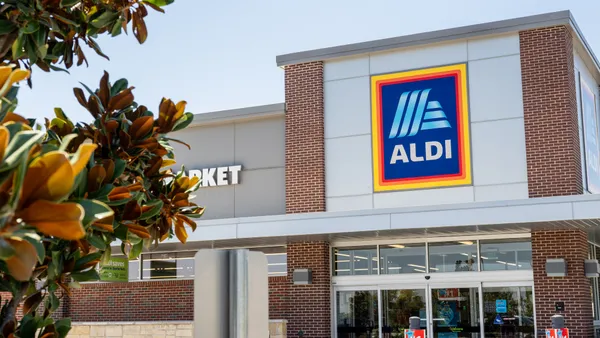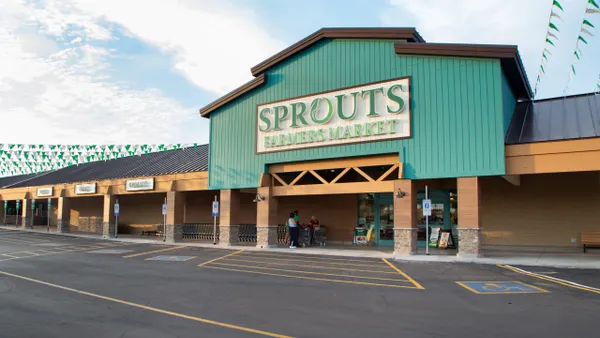Dive Brief:
- Private label brands posted double-digit sales increases in the U.S. during the initial stages of the coronavirus pandemic, according to Nielsen data cited by the Private Label Manufacturers Association (PLMA). First-quarter store brand sales increased 15%, or about $4.9 billion, over the year-ago period, while unit volume grew 13%. Total dollar sales for Q1 were $38.4 billion with 13.2 billion units sold.
- During the quarter, private label dollar and unit sales grew faster than national brands. Store brands grew about 14.6% in dollar volume compared to national brands' 11.5% increase, while unit sales were up 12.8% compared to a 9.2% increase for national brands.
- Mass retailers, club and dollar stores showed the strongest gains in store brand sales during Q1. For these retailers, store brands gained 16.6% in dollar sales. Supermarkets saw a 12.7% increase in dollar volume for their store brands and drug stores saw a 13% boost.
Dive Insight:
From the panic buying that defined the early stages of the pandemic to the stock-up shopping that many shoppers now do on a weekly basis, price and product availability have trumped brand loyalty, research has shown.
But while sales of store brands have outpaced national brands so far this year, retailers and private label manufacturers may not have the same production capacity as brand-name competitors. Jeremiah McElwee, senior vice president of marketing with online grocer Thrive Market, said the company's private label suppliers, which produce products to Thrive's health and ingredient specifications, have labored to keep up with booming demand over the past several weeks. These suppliers have needed longer lead times to procure ingredients and ramp up supply capabilities, he said.
"Our private brand sales are through the roof, but the biggest challenge has been staying in stock," McElwhee told Grocery Dive.
According to the PLMA report, private label manufacturers are making operational changes to cope with the rise in demand. Companies are simplifying their SKU range and retooling their production processes to accommodate higher e-commerce orders. Suppliers in high-demand categories like toilet paper and hand sanitizer are operating their factories 24 hours a day, seven days a week, the organization said.
As private label suppliers adjust to demand, retailers will likely continue to see elevated sales from budget-conscious consumers. Since COVID-19 hit, 26 million Americans have filed for unemployment, leaving many shoppers looking for cheaper alternatives. According to a survey by 451 Research cited by S&P Global Market Intelligence, three-quarters of shoppers said this month they plan to curb their spending over the next 90 days.
According to the PLMA report, drug stores and the mass channel, which includes dollar stores and club stores, both slightly increased their store brand market share in dollar and unit sales. Supermarkets' private label market share, meanwhile, remained unchanged during the first quarter.
Jeff Wells contributed reporting to this story.









